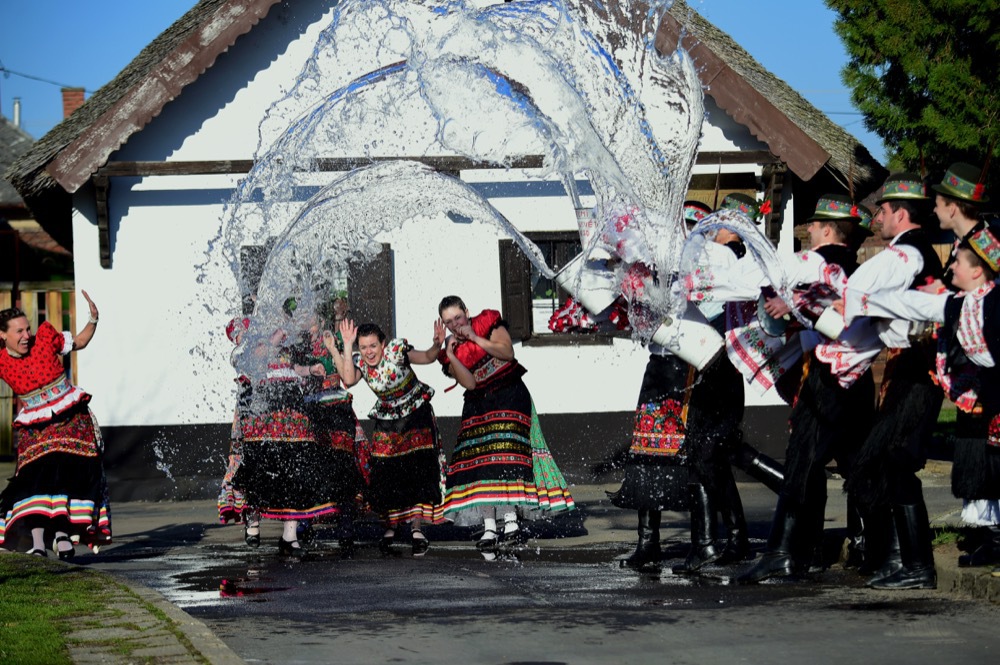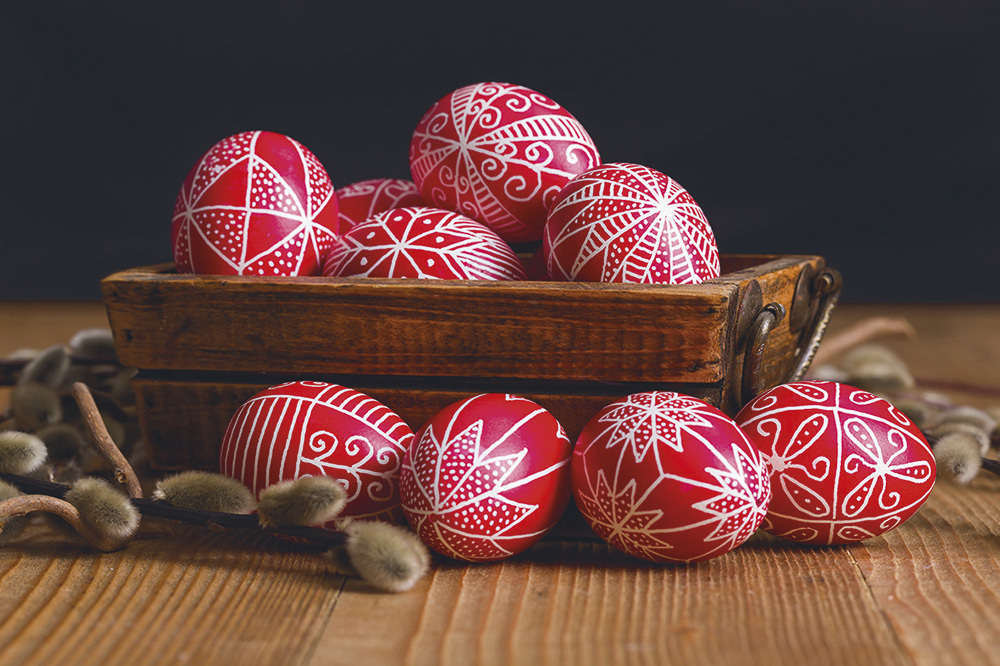Origins
The word Easter is associated with Eostre (or Eostrae) who was the Anglo-Saxon goddess of spring and fertility. In the Hungarian word “Húsvét” “hús” means “meat” and “vét” is a form of the word “take”, this simply refers to the end of the biggest period of fasting in Christian religion. After 40 days of fasting, Christians are able to take meat for the first time when Húsvét begins.
Easter celebrates the resurrection of Jesus Christ three days after his crucifixion. The religious events begin on Palm Sunday, the Sunday before Easter when Jesus arrived to Jerusalem. This day marks the beginning of the Holy or Great Week. On Maundy Thursday we remember the last supper of Jesus and his disciples, after which he was betrayed and arrested. On Good Friday Jesus was found guilty and was crucified by the Romans. Jesus died on Saturday, therefore there are no liturgies or masses on that day. Easter Sunday said to be the biggest celebration of Christianity, this is when Jesus resurrected. This day the churches are filled with candles and flowers, and there are holiday masses. The official end of Easter is Easter Monday - a public holiday in Hungary - when the focus turns to the folk traditions.

Traditions of Easter
In Hungarian folklore Easter has intertwined with many local traditions related to the arrival of spring, courting customs, health and fertility. Traditionally women and girls decorate eggs which they offer to men and boys who arrive on Easter Sunday with a short and funny poem. Back in the old days they would grab the women and take them next to the well and toss a bucket of water on them. These days men rather use perfume or cologne. In return of the freshening girls give the painted eggs, and offer traditional Hungarian-Easter food and drinks. For the children in the house, the mythical Easter bunny brings small chocolate eggs as presents. From early morning on, the dinner table is filled with mouth-watering dishes, the blessed braided scone and lamb meat, home-made smoked ham, hard-boiled eggs, fresh horse-radish and a little bit of pálinka, the famous Hungarian spirit. This opens the tradition into a moment of connecting, resting and true celebration.

If you want to try some of the customs, you can immerse in the DIY YouTube videos of egg painting and other Easter decorations, or the making of the traditional home-made braided scones (called “kalács”). Take a moment to learn more about these rich Hungarian and Christian traditions!
Links and sources: Britannica.com, Whyeaster.com
Source of the Image: Wikipedia